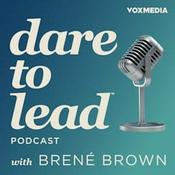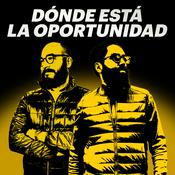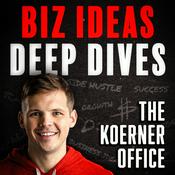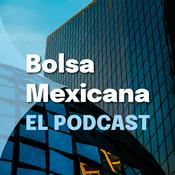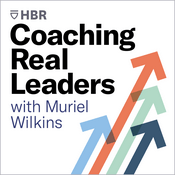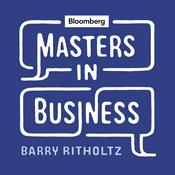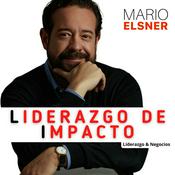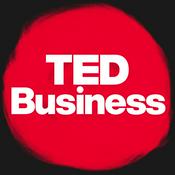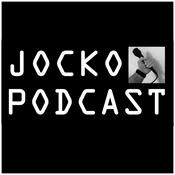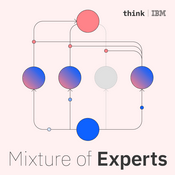66 episodios

Linux for Health | Dixon Whitmire, Lead Coding Architect, Watson Health
10/3/2022 | 51 min
In this episode, we’re excited to bring you a conversation with Watson Health’s Lead Coding Architect, Dixon Whitmire. Dixon is here to give us the details on the open source project Linux For Health, the aim of which is to be the reference implementation for healthcare transactions.Dixon digs into healthcare transaction technology, how patients and healthcare workers interact with health data, and how an open source project like Linux for Health breaks down the silos of different standards and organizations. Along the way, he describes how changes to the software can have immediate real world benefits for anyone who needs access to health records, a requirement that has only grown in urgency in the shadow of a global pandemic.If you’re working in — or thinking of using — an open source environment and you have an interest in the way health records are accessed and shared, you won’t want to miss this discussion.Links related to this episodeLinux for HealthIBM Watson HealthTakeaways:00:01 - 00:27 Episode Intro01:15 - 01:52 Introduction to Dixon02:08 - 04:12 Dixon's role at IBM, and Linux For Health04:30 - 05:48 Why go all the way down to the OS?06:06 - 07:34 Problems in the industry: Data is siloed12:06 - 14:33 What ASC X12 and HL7 both are17:34 - 19:01 Security in Linux For Health19:33 - 20:50 EDI: What is it and why it's important26:35 - 29:32 For Developers: Where to start if you want to play around and work on projects34:33 - 36:17 Linux for Health in relation to Watson Health49:29 - 50:22 Final Thoughts by Dixon

Open Source Security Foundation | Interview with Brian Behlendorf, GM, OpenSSF
23/2/2022 | 49 min
Brian Behlendorf is the General Manager of the Open Source Security Foundation. Brian has dedicated his career to connecting and empowering the free software and open source community to both solve difficult technology problems and have a positive impact on society. From startup company founder, to advisor to the U.S. government, to non-profit board member and employee of the World Economic Forum, he's been at the forefront of the open source software revolution. Join hosts Luke Schantz and Joe Sepi as they get Brian's take on the latest open source software developments. As the recent Log4J vulnerability has shown, open source software is not immune to security breaches and attack. Brian shares his views on the Log4J scramble, his recent White House meetings on software security, the costs of security and threat mitigation, and future challenges and opportunities in open source software. Join us for a look back at Brian Behlendorf's unique career and see what's next for him and the movement he helped launch, this time on In the Open with Luke & Joe.Key Takeaways:[00:04 - 00:24] Intro to the episode[02:00 - 02:49] Intro to Brian Behlendorf[02:59 - 08:04] Brian's role with the Open Source Security Foundation[08:46 - 14:16] The importance and newer focus on security[15:29 - 18:27] How to more folks, importantly the US Government, involved in Node.Js[18:52 - 21:43] SBOM[21:48 - 26:17] The Alpha Omega Project[27:28 - 30:58] Getting money and support for security[31:46 - 35:02] The Best Practices badge[35:12 - 38:44] Project Sigstore[39:29 - 41:04] How to get involved in Open SSFResources:Brian Behlendorf bio: https://en.wikipedia.org/wiki/Brian_BehlendorfOpen Source @ IBM: https://www.ibm.com/opensource/Learn in-demand skills. Build with real code. Connect to a global development community: http://ibm.biz/IBMdeveloperYTFollow IBM Developer on social:Twitter: https://twitter.com/IBMDeveloperFacebook: https://www.facebook.com/IBMDeveloper/More from IBM Developer:Community: https://developer.ibm.com/community/Blog: https://developer.ibm.com/blogs/Call for Code: https://developer.ibm.com/callforcode/#opensource#Developer#Coding#IntheOpen#IBMDeveloper

The Open Source Cloud Guide Episode
14/12/2021 | 21 min
In this podcast, Steve Martinelli, Dr. Max, and Emily Mitchell talk about a new Open Source Cloud Guide created to show what open source technology underpins today’s major cloud offerings.They chat about : ⁃ Why the guide was created ⁃ Specific topic areas within the guide ⁃ Ways you can contribute or enhance the guideAn O’Reilly survey that IBM commissioned in late 2020 pointed out that developers who want to build cloud applications should work on honing their open-source skills instead of only focusing on developing skills for a proprietary cloud.The survey highlighted that the most desired of the open-source skills are around Linux (containers), artificial intelligence and machine learning, and data storage.This got us thinking: How do those skills translate exactly to developing for hybrid cloud environments, inclusive of the major cloud providers? What open-source technologies are most used?The purpose of the Open Source Cloud Guide is to answer those questions.This Open Source Cloud Guide seeks to inform developers about what open source technology is important to contribute to. And, because it’s open sourced itself, you can contribute about the technology that’s included in other clouds. Use and contribute to the Open Source Cloud GuideKey Takeaways:[00:00 - 00:30] Intro to the episode[01:11 - 03:27] Intro to guests Emily, Dr. Max, and Steve[03:37 - 05:44] What is the Open Source Cloud Guide?[06:12 - 10:27] What to expect in terms of AI, APIs, big data containers, etc.[18:06 - 19:41] Emily's involvement in the projectResources:The Open Source Cloud Guide: open-cloud-guide.dev/Read & developer.ibm.com/blogs/contribute-to-a-new-open-source-cloud-guideIBM DeveloperIn the era of open hybrid cloud, open source skills matter more than proprietary software skillsO'Reilly survey highlights that open source cloud skills set devs apart for career prospects (40 kB)https://developer.ibm.com/blogs/oreilly-open-source-skill-survey-blog/

Kris Baritt | Client Engineering
21/10/2021 | 50 min
Please join us for a conversation with Kris Baritt, VP of Technology for Client Engineering at IBM. Our discussion will cover a variety of topics including how he activates teams, develops new leaders and has an affinity for hyper-growth moments.Key Takeaways:[00:05 - 00:25] Intro to the episode[03:36 - 05:15] What Kris and the team do at IBM[12:30 - 15:10] What hybrid cloud means[15:25 - 17:40] Exciting projects Kris and team have been working on[19:31 - 25:11] Kris's origin story[33:26 - 37:12] How Kris builds and implements teams[45:36 - 47:36] What Kris is excited about these days

Executive Director at the OpenJS Foundation | Robin Bender Ginn
22/9/2021 | 50 min
Please join us for a conversation with Robin Bender Ginn the Executive Director of the OpenJS Foundation. We will be discussing a variety of topics including the origins and mission of the OpenJS Foundation, as well as, programs, certifications and upcoming events.Robin Bender Ginn, Executive Director OpenJS Foundation, @rginn206Joe Sepi, Open Source Engineer & Advocate, @joe_sepi Luke Schantz, Quantum Ambassador & Podcaster @IBMDeveloper, @lukeschantzKey Takeaways:[00:05 - 00:21] Intro to the episode[02:24 - 05:13] Intro to Robin and her experience with open source[07:55 - 10:28] The role of the OpenJS Foundation[11:16 - 14:26] Different way individuals and organizations are involved[15:16 - 17:00] A cross project called Collaboration Spaces[17:15 - 18:51] Robin's experience as Executive Director of OpenJS Foundation[37:14 - 39:15] How projects come into the OpenJS Foundation[41:36 - 44:04] Trainings and certifications at the foundationResources:OpenJS Foundation: openjsf.orgOpenJS Collaboration: openjsf.org/collaborateOpenJS Certification and Training Programs: openjsf.org/certificationOpenJS World 2021: openjsf.org/openjs-world-2021OpenJS Foundation Individual Supporter Program: openjsf.org/javascriptlandiaOpen Source Summit: events.linuxfoundation.org/open-source-summit-north-americaOpen Source Security Foundation: openssf.orgNebraska project: xkcd.com/2347
Más podcasts de Economía y empresa
Podcasts a la moda de Economía y empresa
Acerca de IBM Developer Podcast
Escucha IBM Developer Podcast, Maldita Pobreza y muchos más podcasts de todo el mundo con la aplicación de radio.net
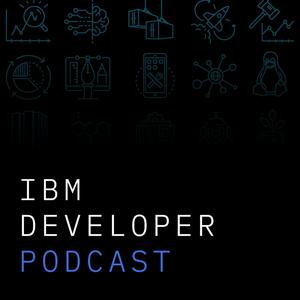
Descarga la app gratuita: radio.net
- Añadir radios y podcasts a favoritos
- Transmisión por Wi-Fi y Bluetooth
- Carplay & Android Auto compatible
- Muchas otras funciones de la app
Descarga la app gratuita: radio.net
- Añadir radios y podcasts a favoritos
- Transmisión por Wi-Fi y Bluetooth
- Carplay & Android Auto compatible
- Muchas otras funciones de la app


IBM Developer Podcast
Descarga la app,
Escucha.










